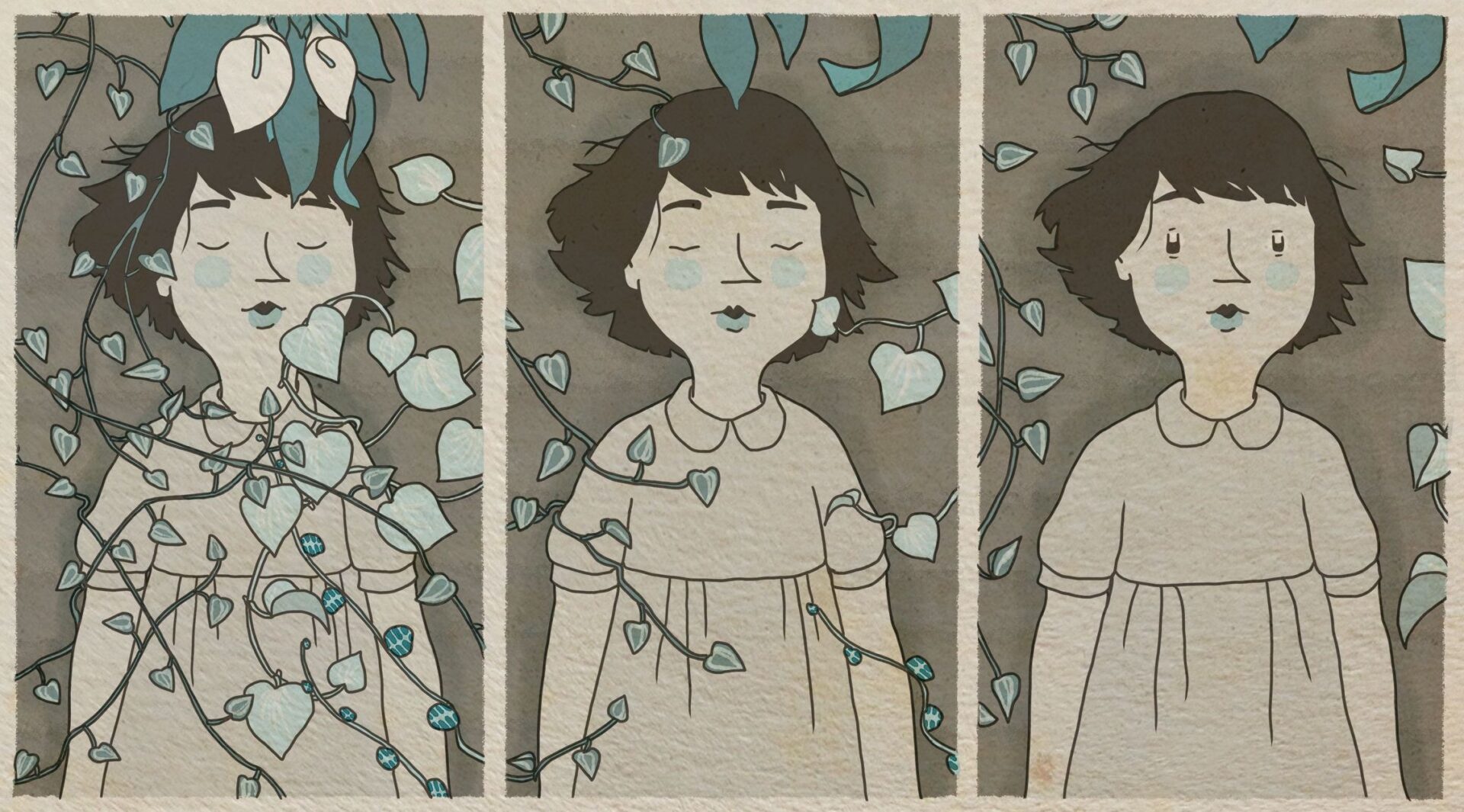
Illustration from the graphic novel, Ephemera.
Grief by way of graphic novel
Over the past few months, grief has visited me more times than I wish. Earlier this year, a dear friend died suddenly and unexpectedly. Since then, my days and weeks have been filtered through those times when little things catch me off guard: a now defunct phone number I cannot bear to delete, a book I think to recommend to him before I sigh with lament when I remember that I no longer can. Little stuff that points to the loss that lingers.
Thankfully, I have others who journey with me. The community of friends helps lighten our collective grief. It helps to know, as I have said in many a funeral, that we do not journey through this time alone.
But we do have to do that personal grief work. As much as friends and family can help, you still need to join Job upon the ash heap from time to time to examine yourself and get a handle or find perspective on things.
The new graphic novel Ephemera: A Memoir has provided some comfort. Since I first saw notices about this book by Briana Loewinsohn (Fantagraphics Books, 2023), I looked for it eagerly.
The word ephemera is used for things that have a limited life. Most of our US mail could be considered as such. Last week’s church bulletin is another. Political campaign buttons are collectible, yet most are cast aside, especially after an election is over, and you have to move on one way or another.
However, ephemera also documents and archives moments instructive for later exploration. For example, a library’s special collections division might keep handbills or posters of past community events. Such work enables future researchers or the merely curious to look back at the little things that made a community that is now long lost to time come briefly back to life: a circus in town, a call to protest, an invitation to celebrate an anniversary itself long past anyone still living’s recollection.
Loewinsohn moves back and forth in the life of a central figure in Ephemera: the young girl and her older adult self, wandering the same ground of family home, separated by decades while also united in a loss. The child is carefree, whereas her adult self is pensive. The child luxuriates in the abundant plant life around her. Her older self slowly tends soil that needs much care and nurture.
The loss that will drive both sides of the story revolves around the girl’s mother, or “Mum.” When Mum appears, the young girl is elated, eager to be at her side, yet the briefest of blinks, and Mum disappears.
Or was she there at all?
Earlier this year, a dear friend died suddenly and unexpectedly. Since then, my days and weeks have been filtered through those times when little things catch me off guard: a now defunct phone number I cannot bear to delete, a book I think to recommend to him before I sigh with lament when I remember that I no longer can. Little stuff that points to the loss that lingers. The new graphic novel Ephemera: A Memoir by Briana Loewinsohn has provided some comfort.
The young child enjoys the bliss of wonder. She lets the vines and leaves cover her. Her sibling appears at the edges of this story, bruised from an encounter with a blackberry bush and far more withdrawn in their own silent grief.
The now adult woman checks the dirt to make it more likely to absorb water for new plantings. It’s the same garden or backyard acreage of childhood, but now less verdant than she remembers, perhaps with the experience of adulthood revisiting and reinterpreting more innocent days.
Indeed, the colors chosen by Loewinsohn guide the slipping from past to present, the green predominant filter of the girl’s childhood, a soft and warm haze, then snapping into a contrast of brown colors, the adulthood of the main character now more pensive, thoughtful.
I found myself feeling the slide from greens to browns, reading the story yet also letting the emotions I have been processing receive some contrast. My friend is dead, yet he appears in my dreams and in odd moments where gratitude and grief interplay.
Is the point of ephemera to remember and wax nostalgic? Are such fragments of a life now past meant to be kept sealed away in a box (or buried in one’s psyche lest the pain hurt)?
For the story Ephemera, it seems a draw. The young girl understood what she could at the time. The adult feels the loss, yet she begins to consider planting and tending once more, a willful choice not to avoid the ground that shaped and scarred her life with loss years ago. She gathers up what she needs from a now dilapidated shed, thinking, “I’ll look for [Mum’s] old tools. And do the best I can” (p. 53)
I loved my friend and colleague David dearly, and his loss hurts. The greens and the browns will somehow reconcile over time. My memories must be honored, just as surely as Creation keeps us honest about the seasons coming and going, and our own journey from child to adult, living the seasons, and then resting in the soil below.
Rev. Jerrod H Hugenot is associate executive minister, American Baptist Churches of New York State.
The views expressed are those of the author and not necessarily those of American Baptist Home Mission Societies.
Visit here for a recent interview with Ephemera author Briana Loewinsohn.



